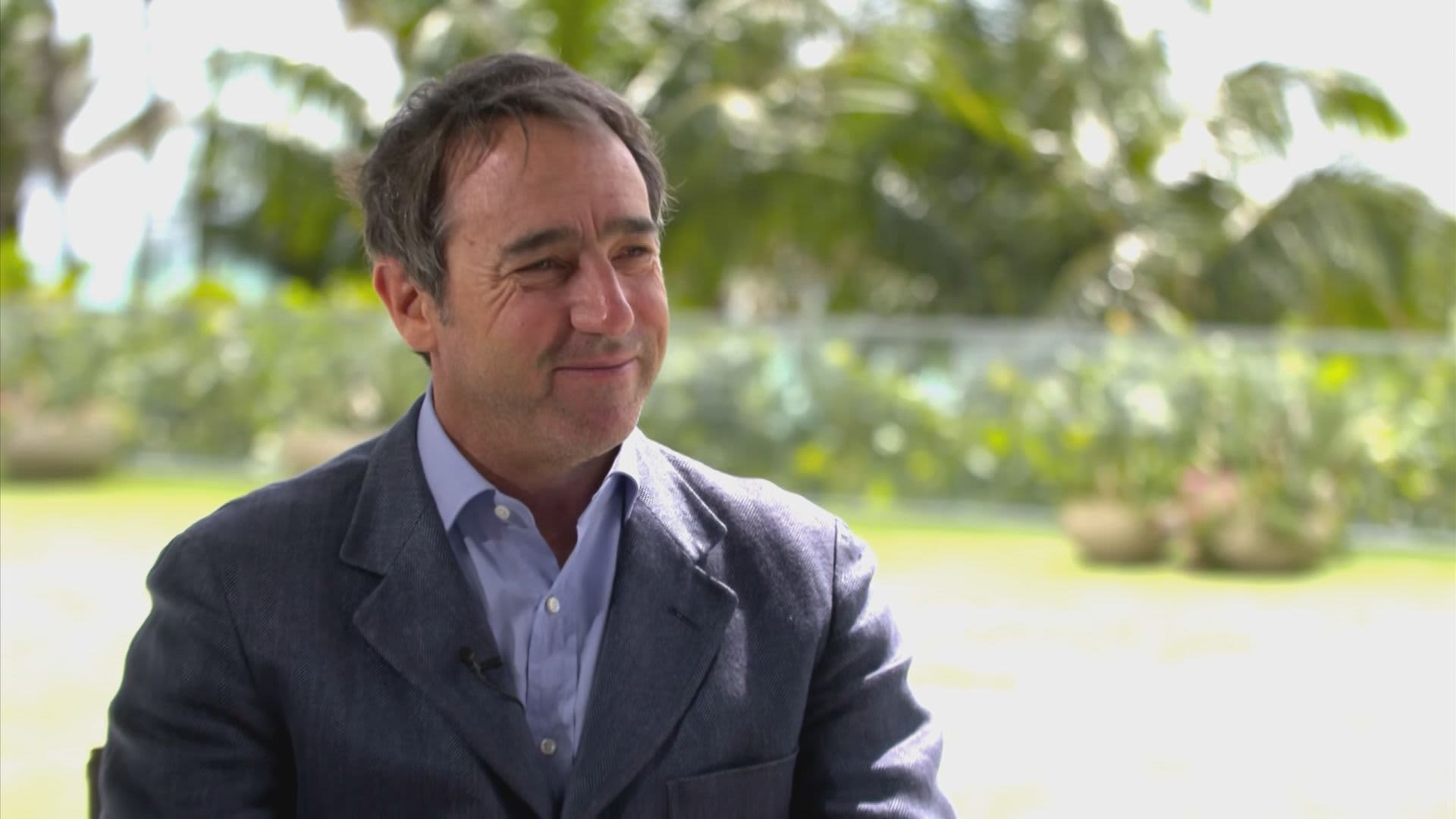Global Trends and Politics
The Healthcare Industry’s CSR Dilemma: Balancing Profit and Patients’ Needs

Corporate social responsibility and politics play a significant role in the healthcare industry, where the pursuit of profit often conflicts with the need to provide quality patient care. The industry’s CSR dilemma is a complex issue, with pharmaceutical companies, hospitals, and medical device manufacturers walking a fine line between generating revenue and prioritizing patients’ needs. In this article, we will explore the challenges facing the healthcare industry and examine the ways in which companies are addressing their CSR dilemma.
The Profit Motive vs. Patient Care
The healthcare industry is a multi-billion dollar market, with companies competing to develop and market new treatments, medications, and medical devices. While the profit motive drives innovation and investment in research and development, it can also lead to prioritization of revenue over patient care. For example, the opioid crisis in the United States has been linked to aggressive marketing tactics by pharmaceutical companies, which have been accused of prioritizing profits over patient safety.
Case Study: Purdue Pharma
Purdue Pharma, the manufacturer of OxyContin, has faced widespread criticism for its role in the opioid crisis. The company has been accused of using deceptive marketing tactics to promote the use of OxyContin, including downplaying the risk of addiction and exaggerating the benefits of the medication. In 2020, Purdue Pharma pleaded guilty to felony charges related to its marketing of OxyContin and agreed to pay $8.3 billion in fines and penalties. The case highlights the need for companies to prioritize patient safety and responsible marketing practices.
Regulatory Environment and CSR
The regulatory environment plays a significant role in shaping the healthcare industry’s CSR dilemma. Governments and regulatory agencies have implemented various policies and guidelines to promote responsible business practices and protect patient safety. For example, the US Food and Drug Administration (FDA) has implemented regulations to ensure the safe and effective use of medical devices and pharmaceuticals. However, the regulatory environment can also create challenges for companies, particularly in terms of compliance and liability.
Impact of Regulation on Innovation
Overly stringent regulations can stifle innovation and limit access to new treatments and medications. For example, the FDA’s approval process for new medications can be lengthy and costly, which can limit the availability of new treatments for patients. Companies must navigate the regulatory environment while balancing the need to prioritize patient safety and responsible business practices.
CSR Initiatives in the Healthcare Industry
Despite the challenges, many companies in the healthcare industry are prioritizing CSR and implementing initiatives to promote patient safety, access to care, and responsible business practices. For example, pharmaceutical companies such as Johnson & Johnson and Pfizer have implemented programs to provide access to affordable medications for low-income patients. Hospitals and healthcare systems are also implementing initiatives to promote patient safety and quality care.
Partnerships and Collaborations
Partnerships and collaborations between companies, governments, and non-profit organizations are critical to addressing the healthcare industry’s CSR dilemma. For example, the Bill and Melinda Gates Foundation has partnered with pharmaceutical companies to develop and distribute affordable vaccines and medications to low-income countries. These partnerships can help to promote access to care, improve patient outcomes, and reduce healthcare disparities.
Global Trends and Politics
Global trends and politics are shaping the healthcare industry’s CSR dilemma. The COVID-19 pandemic has highlighted the need for companies to prioritize patient safety and responsible business practices. Governments and regulatory agencies are also implementing policies to promote access to care and reduce healthcare disparities. For example, the World Health Organization (WHO) has implemented initiatives to promote global access to affordable medications and vaccines.
Impact of Trade Policies on Healthcare
Trade policies can also impact the healthcare industry’s CSR dilemma. For example, tariffs and trade agreements can limit access to affordable medications and medical devices. Companies must navigate the complex trade environment while prioritizing patient safety and responsible business practices.
Conclusion
The healthcare industry’s CSR dilemma is a complex issue, with companies facing challenges in balancing profit and patients’ needs. While the profit motive drives innovation and investment in research and development, it can also lead to prioritization of revenue over patient care. Companies must prioritize patient safety, access to care, and responsible business practices while navigating the regulatory environment and global trends. By implementing CSR initiatives, partnerships, and collaborations, companies can promote patient safety, improve patient outcomes, and reduce healthcare disparities.
Frequently Asked Questions (FAQs)
What is the healthcare industry’s CSR dilemma?
The healthcare industry’s CSR dilemma refers to the conflict between the pursuit of profit and the need to provide quality patient care. Companies in the industry must balance the need to generate revenue with the need to prioritize patient safety and responsible business practices.
How can companies address the CSR dilemma?
Companies can address the CSR dilemma by implementing initiatives to promote patient safety, access to care, and responsible business practices. This can include partnerships and collaborations with governments, non-profit organizations, and other stakeholders.
What role does regulation play in the CSR dilemma?
Regulation plays a significant role in shaping the healthcare industry’s CSR dilemma. Governments and regulatory agencies have implemented policies and guidelines to promote responsible business practices and protect patient safety. However, the regulatory environment can also create challenges for companies, particularly in terms of compliance and liability.
How can global trends and politics impact the CSR dilemma?
Global trends and politics can impact the healthcare industry’s CSR dilemma by shaping the regulatory environment, trade policies, and access to care. Companies must navigate the complex global environment while prioritizing patient safety and responsible business practices.
What are some examples of CSR initiatives in the healthcare industry?
Examples of CSR initiatives in the healthcare industry include partnerships and collaborations to promote access to affordable medications and vaccines, programs to provide access to care for low-income patients, and initiatives to promote patient safety and quality care.
Global Trends and Politics
Domestic Flight Prices Drop as Travel Demand Slows

Introduction to the Airline Industry’s Current State
Airlines have been warning Wall Street that passengers’ appetite for domestic trips is coming in lighter than they had hoped when they set forecasts high at the start of 2025. On a series of earnings calls, they said the reasons range from President Donald Trump’s whipsawing tariff policies to volatile markets and, most notably, economic uncertainty.
Factors Contributing to Economic Uncertainty
"Nobody really relishes uncertainty when they’re talking about what they could do on a vacation and spend hard-earned dollars," American Airlines CEO Robert Isom said on a quarterly earnings call on Thursday. That means airlines have too many seats on their hands — again. Delta Air Lines, Southwest Airlines, and United Airlines said they will cut back their capacity growth plans after what they still hope to be a strong summer travel season.
Impact on Airlines’ Financial Outlooks
Delta, Southwest, Alaska Airlines, and American Airlines pulled their 2025 financial outlooks this month, saying the U.S. economy is too tough to predict right now. United Airlines provided two outlooks, one if the U.S. falls into a recession and said it expects to be profitable in either scenario.
Effects on Airfare Prices
That is leading to cheaper plane tickets. Airfare fell 5.3% in March from last year, according to the Bureau of Labor Statistics’ latest data. Easter, a peak travel period that coincides with many school vacations, fell in March of last year, though fares also dropped 4% in February this year.
Corporate Travel and Its Challenges
Adding to pressure, executives said, is slower-than-expected growth from corporate travel, which is facing the same challenges many households are. Government travel plunged, too, amid the Trump administration’s cost cuts and mass layoffs this year. "If uncertainty pops up, the first thing that goes away is corporate travel," said Conor Cunningham, a travel and transportation analyst at Melius Research.
Business Travel Trends
Delta CEO Ed Bastian said on April 9 that corporate travel was trending up 10% year on year at the start of 2025, but that growth has since flattened. Business travel is key to major carriers because those customers are less price-sensitive and often book last minute when tickets are likely to be more expensive.
Overhang of Seats in Domestic Skies
The overhang of seats in the domestic skies is forcing airlines to cut prices to fill their planes. Alaska Airlines warned Wednesday that weaker-than-expected demand will likely eat into second-quarter earnings. Chief Financial Officer Shane Tackett told CNBC that demand has not plunged, but the carrier has lowered some fares to fill seats.
Demand for Air Travel
"The fares aren’t as strong as they were in the fourth quarter of last year and coming into January and first part of February," Tackett said in an interview Wednesday. "Demand is still quite high for the industry, but it’s just not at the peak that we all anticipated might continue coming out of last year." At the front of the plane, executives say demand is holding up far better, while U.S.-based customers are still flying overseas in droves.
Conclusion
Lingering concerns are still weighing on the industry. "Certainty will restore the economy, and I think it will restore it pretty quickly," Isom said. The airline industry is facing challenges due to economic uncertainty, and it is essential for them to adapt to the changing market conditions to remain profitable.
FAQs
Q: What is the main reason for the decline in domestic air travel demand?
A: The main reason for the decline in domestic air travel demand is economic uncertainty, including President Donald Trump’s whipsawing tariff policies and volatile markets.
Q: How are airlines responding to the decline in demand?
A: Airlines are cutting back their capacity growth plans and reducing airfare prices to fill their planes.
Q: What is the impact of corporate travel on the airline industry?
A: Corporate travel is a significant contributor to the airline industry, and slower-than-expected growth in corporate travel is adding to the pressure on airlines.
Q: Are airfare prices expected to continue to decline?
A: Yes, airfare prices are expected to continue to decline due to the overhang of seats in the domestic skies and the need for airlines to fill their planes.
Q: How is the demand for international air travel?
A: The demand for international air travel is still strong, with U.S.-based customers continuing to fly overseas in droves.
Global Trends and Politics
Latin America’s Trade War Opportunity

Introduction to MercadoLibre and Its CEO
The CEO of Argentina’s MercadoLibre — often called the Amazon of Latin America — sees big opportunity for Latin America in the U.S.-China trade war. MercadoLibre CEO and founder Marcos Galperin told CNBC’s Robert Frank on the sidelines of Riverwood Capital Management’s LatAm Tech Forum in Miami, "If Latin America plays its cards well, I think it could benefit from this volatility." Galperin is Argentina’s richest person with an $8.7 billion fortune by Forbes’ estimate.
Impact of U.S.-China Trade War on Latin America
Shares of MercadoLibre, an e-commerce and payments firm, have surged by nearly 30% this year, while Amazon, facing massive exposure to President Donald Trump’s wide-sweeping tariffs, is down 15%. Galperin told CNBC that Latin American firms, especially in Mexico, stand to gain from escalating tensions between the U.S. and one of its chief trade partners. He noted that many American companies have already moved their manufacturing operations to Mexico from China and other Asian countries. Mexico has a free trade agreement with the U.S. that means some imports from the country are exempt from Trump’s tariffs of as much as 25% on Mexican goods.
Shift in U.S.-China Trade Relations
Galperin said he believes there will be a "permanent shift" in U.S.-China trade relations. "I don’t know how it’s going to end, but I think the situation where everything was manufactured in China and was consumed in the U.S., and China bought T-bills and in a way financed that, I think that dynamic is kind of over," he said. The U.S. president has hit China hardest, however, with a 145% tariff rate on Chinese goods.
Argentina’s Economic Policies
Argentina, Galperin’s home country, has a long history of protectionist policies including high tariffs. Argentine president Javier Milei, who has described Trump as an ally, has slashed tariffs and import restrictions since his inauguration in late 2023. "I think what Milei is doing is great for Argentina," Galperin said of the free-market reforms. However, he warned there will be growing pains. "I hope it works," he said. "Changes are painful, and I hope that people have the patience and the time to give him to see that these changes in the medium and long term really create benefits for everyone."
Conclusion
In conclusion, MercadoLibre’s CEO Marcos Galperin sees a significant opportunity for Latin America to benefit from the U.S.-China trade war. With many American companies moving their manufacturing operations to Mexico, and Argentina adopting free-market reforms, the region is poised for growth. However, there will be challenges to overcome, and it remains to be seen how the situation will unfold.
FAQs
Q: Who is Marcos Galperin?
A: Marcos Galperin is the CEO and founder of MercadoLibre, an e-commerce and payments firm often referred to as the Amazon of Latin America.
Q: What is the impact of the U.S.-China trade war on Latin America?
A: The trade war presents an opportunity for Latin America to benefit from the volatility, with many American companies moving their manufacturing operations to Mexico.
Q: What is Argentina’s economic policy under President Javier Milei?
A: President Milei has slashed tariffs and import restrictions, adopting free-market reforms aimed at boosting the country’s economy.
Q: What are the potential challenges facing Argentina’s economic reforms?
A: The changes may be painful, and it remains to be seen whether the reforms will create benefits for everyone in the medium and long term.
Q: How have MercadoLibre’s shares performed in recent times?
A: Shares of MercadoLibre have surged by nearly 30% this year, outperforming Amazon which is down 15%.
Global Trends and Politics
Leading Through Political Turmoil: Strategies for Managers

Political impacts on workplaces can be significant, and managers must be prepared to navigate these challenges. In today’s globalized world, political events can have far-reaching consequences, affecting businesses and organizations in various ways. As a manager, it is essential to understand the potential implications of political turmoil on your workplace and develop strategies to lead your team through these uncertain times.
Understanding the Impact of Political Turmoil on the Workplace
Political turmoil can manifest in different forms, such as changes in government policies, economic sanctions, or social unrest. These events can lead to increased uncertainty, anxiety, and stress among employees, ultimately affecting their productivity and job satisfaction. For instance, the COVID-19 pandemic has highlighted the importance of adaptability and resilience in the face of uncertainty. Companies like Google and Amazon have demonstrated their ability to navigate these challenges by prioritizing employee well-being and safety.
Communicating with Employees During Times of Uncertainty
Effective communication is crucial during times of political turmoil. Managers should maintain open and transparent communication channels, providing employees with regular updates and reassurance. This can be achieved through regular town hall meetings, email updates, or one-on-one conversations. For example, during the 2020 US presidential election, companies like Microsoft and Facebook encouraged employees to take time off to vote, demonstrating their commitment to civic engagement and employee well-being.
Strategies for Managing Political Turmoil in the Workplace
To navigate the challenges posed by political turmoil, managers can employ several strategies. These include:
Fostering a Culture of Inclusivity and Respect
Creating a culture of inclusivity and respect is essential for promoting employee well-being and productivity. Managers can achieve this by encouraging open dialogue, respecting diverse perspectives, and promoting a culture of empathy and understanding. Companies like Cisco and IBM have implemented diversity and inclusion initiatives, such as employee resource groups and mentorship programs, to foster a sense of belonging among employees.
Developing a Crisis Management Plan
Having a crisis management plan in place can help managers respond effectively to unexpected events. This plan should include procedures for communicating with employees, customers, and stakeholders, as well as strategies for mitigating potential risks and consequences. For instance, during the 2011 Arab Spring, companies like Coca-Cola and Pepsi developed crisis management plans to ensure business continuity and employee safety in affected regions.
Encouraging Employee Engagement and Participation
Encouraging employee engagement and participation can help build trust and foster a sense of community within the organization. Managers can achieve this by providing opportunities for employees to contribute to decision-making processes, participate in volunteer programs, or engage in team-building activities. Companies like Salesforce and Patagonia have implemented employee engagement initiatives, such as volunteer time off and employee-led committees, to promote a sense of purpose and fulfillment among employees.
Navigating the Challenges of Remote Work During Political Turmoil
The shift to remote work has created new challenges for managers, particularly during times of political turmoil. To navigate these challenges, managers can:
Establish Clear Communication Channels
Establishing clear communication channels is essential for remote teams. Managers can achieve this by using collaboration tools, such as Slack or Microsoft Teams, to facilitate regular updates and feedback. Companies like Upwork and FlexJobs have successfully implemented remote work arrangements, demonstrating the potential for remote teams to thrive in uncertain environments.
Provide Support and Resources for Remote Employees
Providing support and resources for remote employees is crucial for promoting their well-being and productivity. Managers can achieve this by offering access to mental health Dichotomy, providing resources for managing stress and anxiety, or facilitating virtual social events. Companies like Buffer and GitLab have implemented remote work policies, such as flexible working hours and virtual team-building activities, to support the well-being and productivity of remote employees.
Conclusion
Leading through political turmoil requires a combination of strategic planning, effective communication, and empathy. By understanding the potential implications of political turmoil on the workplace, fostering a culture of inclusivity and respect, and developing a crisis management plan, managers can navigate these challenges and promote employee well-being and productivity. As the global landscape continues to evolve, it is essential for managers to remain adaptable, resilient, and committed to supporting their employees through uncertain times.
Frequently Asked Questions
Q: How can managers communicate effectively with employees during times of political turmoil?
A: Managers can communicate effectively with employees by maintaining open and transparent communication channels, providing regular updates and reassurance, and encouraging open dialogue and feedback.
Q: What strategies can managers use to foster a culture of inclusivity and respect in the workplace?
A: Managers can foster a culture of inclusivity and respect by encouraging open dialogue, respecting diverse perspectives, and promoting a culture of empathy and understanding. They can also implement diversity and inclusion initiatives, such as employee resource groups and mentorship programs.
Q: How can managers develop a crisis management plan to respond to unexpected events?
A: Managers can develop a crisis management plan by identifying potential risks and consequences, establishing procedures for communicating with employees and stakeholders, and developing strategies for mitigating potential risks and consequences.
Q: What resources can managers provide to support remote employees during times of political turmoil?
A: Managers can provide resources such as access to mental health support, resources for managing stress and anxiety, and virtual social events to support the well-being and productivity of remote employees. They can also establish clear communication channels and provide regular updates and feedback to facilitate remote work arrangements.
-

 Career Advice5 months ago
Career Advice5 months agoInterview with Dr. Kristy K. Taylor, WORxK Global News Magazine Founder
-

 Diversity and Inclusion (DEIA)5 months ago
Diversity and Inclusion (DEIA)5 months agoSarah Herrlinger Talks AirPods Pro Hearing Aid
-

 Career Advice5 months ago
Career Advice5 months agoNetWork Your Way to Success: Top Tips for Maximizing Your Professional Network
-

 Changemaker Interviews4 months ago
Changemaker Interviews4 months agoUnlocking Human Potential: Kim Groshek’s Journey to Transforming Leadership and Stress Resilience
-

 Diversity and Inclusion (DEIA)5 months ago
Diversity and Inclusion (DEIA)5 months agoThe Power of Belonging: Why Feeling Accepted Matters in the Workplace
-

 Global Trends and Politics5 months ago
Global Trends and Politics5 months agoHealth-care stocks fall after Warren PBM bill, Brian Thompson shooting
-

 Global Trends and Politics5 months ago
Global Trends and Politics5 months agoUnionization Goes Mainstream: How the Changing Workforce is Driving Demand for Collective Bargaining
-

 Training and Development5 months ago
Training and Development5 months agoLevel Up: How Upskilling Can Help You Stay Ahead of the Curve in a Rapidly Changing Industry









